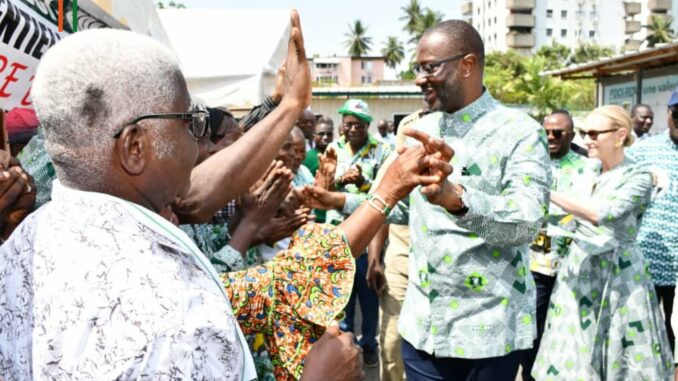
Côte d’Ivoire’s opposition figurehead, Tidjane Thiam, has stepped down as president of the Democratic Party of Côte d’Ivoire (PDCI) amid mounting legal and political challenges, but insists he will not abandon the quest to reclaim the presidency.
Addressing party supporters via social media on May 12, the former banker reaffirmed his commitment to the October 2025 elections, despite a controversial court ruling that disqualified his candidacy over dual citizenship issues. Thiam, who renounced his French nationality in March to comply with electoral requirements, lamented the decision as a deliberate strategy to weaken the opposition.
Thiam’s departure from the party’s top post follows weeks of turbulence, including a court challenge to his Ivorian citizenship at the time of his PDCI election. His removal from the electoral roll has ignited concerns of an uneven playing field, as three other opposition figures—most notably former President Laurent Gbagbo—have also been excluded.
In his speech, Thiam alleged that these developments reflect a broader pattern of politically motivated exclusions aimed at securing “tailor-made elections and a certain victory” for the ruling establishment.
In the wake of Thiam’s resignation, PDCI deputy president Ernest N’Koumo Mobio has assumed interim leadership, calling for party unity in a moment of deep political urgency. The party is planning to hold its Congress on May 14th.
President Alassane Ouattara, now 83, has yet to confirm whether he will seek re-election. The government maintains that the judiciary operates independently, rejecting accusations of interference. Still, Thiam’s ousting has cast a long shadow over the credibility of the electoral process, raising questions about the future of pluralism and democratic transition in one of West Africa’s most influential nations.
